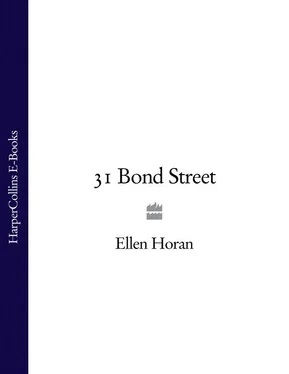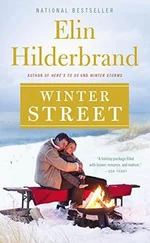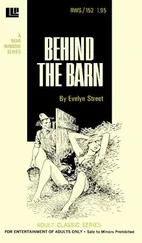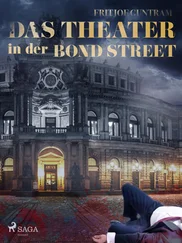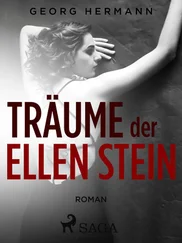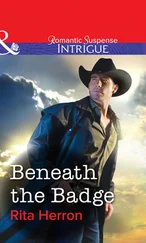“There was plenty of time to clean up after this bloody brawl, and I don’t see any trace of the killer leaving the house.” Connery went to the door and yelled down the staircase to one of the officers. “I want everyone detained in their rooms until they are interrogated.”
“It’s the weekend, sir,” said Dilkes. “Maybe we should confer with the District Attorney before we put anyone in house arrest.”
“The District Attorney will be here fast enough. He’ll be jumping all over this one. With a murder on Bond Street, he’ll want it solved quick. Pull a jury. Drag them from their Sunday suppers if you must. Now, let me speak to the woman of the house.”
On the third floor, Emma Cunningham sat by the window in her bedroom. She was lost in a reverie, almost a stupor. Augusta and Helen sat with her, weeping by the fire. It had been several hours since the trauma, and the wind still howled through the street. The wood of the stairway heaved, and the bedroom door opened. The Police Captain entered along with Coroner Connery and several officers. They crowded in, an imposing presence in her floral bedroom.
“Excuse me, Ma’am,” said Captain Dilkes. “We need to ask you some questions. We will be placing you under detention in your room while we conduct a full inquest.”
“Detention?” asked Emma. “Why?” Connery looked her over carefully. She had been described as a widow but was remarkably youthful, seeming not much older than her teenage daughters, who were huddled on an overstuffed ottoman by the fire. Her body was prone, leaning across the arm of the chair, as if the distress of the morning had left her languishing in despair. Her linen blouse was disheveled, revealing traces of her camisole and a corseted bustier. Her complexion was blotchy from tears, her lips pink, her dark hair glossy, falling wildly from her hairpins and curling across her shoulders.
“With all due respect to you and your daughters, Madame, I need to ascertain how a man came to be viciously massacred while so many people were home. You’ve haven’t told us everything, now, have you?” asked Connery.
“I have told the officers everything,” Emma replied, her voice tinged with alarm. “I was sleeping, and did not hear a thing.” She tried to summon her best composure but her expression changed like a cloud movement: flashes of red emerged in sudden streaks across her face, and tears began coursing along her cheeks. Her countenance betrayed such anxiety that Connery eyed her closely. His instinct told him to remain still—emotional moments like these were often followed by a confession. She clutched a paper in her hand. Pale and shaking, she lifted it and offered it to the Coroner. It was a scroll wrapped with a blue satin ribbon.
He slowly opened the scroll. He looked it over, his eyes darting across the words, and then to the faces of the men.
“This sheds quite a different light on matters, doesn’t it?” he said. It was a certificate, dated January 14, 1857, two weeks earlier, and signed by the reverend of the Reformed Dutch Church on Greenwich Street. He passed the paper to Dilkes. “Is this yours, Ma’am?”
“Yes, it is mine …,” she said, barely above a whisper. “It was supposed to be a secret and not to be made public until the spring.” She drew a breath, and spoke louder, with clear diction, “This is my marriage certificate and I am Harvey Burdell’s wife.”
CHAPTER THREE Contents Cover Title Page Part I Chapter 1 Chapter 2 Chapter 3 Chapter 4 Chapter 5 Chapter 6 Chapter 7 Chapter 8 Chapter 9 Chapter 10 Part II Chapter 11 Chapter 12 Chapter 13 Chapter 14 Chapter 15 Chapter 16 Chapter 17 Chapter 18 Chapter 19 Chapter 20 Chapter 21 Part III Chapter 22 Chapter 23 Chapter 24 Chapter 25 Chapter 26 Chapter 27 Chapter 28 Chapter 29 Chapter 30 Chapter 31 Chapter 32 Chapter 33 Chapter 34 Chapter 35 Chapter 36 Part IV Chapter 37 Chapter 38 Chapter 39 Chapter 40 Chapter 41 Chapter 42 Chapter 43 Chapter 44 Author’s Note Acknowledgments Copyright About the Publisher
MYSTERIOUS MIDNIGHT MURDER
AN EMINENT CITIZEN ASSASSINATED
INTENSE EXCITEMENT IN BOND STREET
An atrocity, almost unparalleled by any of the atrocities committed in this City, came to light on Saturday morning in the house at No. 31 Bond Street. Dr. Harvey Burdell was found in his office, foully murdered, and frightfully and fiendishly mutilated. Dr. Burdell was a man of considerable wealth, and respectably connected.
All the inmates of the house, which is also occupied by the family of a housemistress, Mrs. Cunningham, are prevented from leaving the premises by a body of Police, who are detailed for that purpose by the Coroner’s orders.
Bond Street was visited by hundreds of persons who came out of curiosity, to look at the house.
The New York Times , FEBRUARY 3, 1857
Monday, February 3, 1857
Henry Clinton scraped the blade along his neck and then tapped the razor against the side of the china basin. He heard a newsboy crying the headlines: “Murder, Murder! Murder on Bond Street!” As the call echoed closer, it drifted into his bedroom like a song. He continued scraping the skin and tapping the bowl without missing a beat. Bond Street was just across Broadway, a block east from his house on Bleecker Street, yet the news did not interrupt the rhythm of his shave. Clinton was a criminal lawyer and no stranger to bloodshed.
He pulled the towel from his neck and wiped away the last beads of lather. He fastened a collar to the top of his shirt, adding cuff links and a silk-lined vest. Lifting a gold watch from his dressing table, he fastened the chain to his pocket. Bond Street, he thought. That would teach her. It was his wife’s idea that they move uptown from Warren Street. As the burgeoning commerce of the city spread like a fan through lower Manhattan, the fine homes downtown, once belonging to bankers and merchants, gave way to shops, and the houses along the side streets were now flanked with tradesmen. The well-to-do had long ago moved north to the quiet elegance of Bleecker Street, Bond Street, and Washington Square.
It wasn’t to keep up with the wealthy that had prompted Elisabeth to insist they move. She had argued for it because their old home was walking distance to his office on Chambers Street and the courts, allowing Clinton to rush back and forth at all times of day and night, never sitting still long enough to eat a proper meal. Now his ride downtown took half an hour on the Bowery omnibus, the distance allowing, Elisabeth had hoped, for a fuller domestic life. In fact, the long commute aggravated him, and his longer absences made her nervous. Now, she was always traveling downtown to visit him and to deliver him food.
Putting on his jacket and fixing his cravat, he entered the breakfast room. Out the high windows, wisteria vines hung bare with icicles and snow drifted deep across the garden from the weekend storm. The aroma of fresh muffins came from the kitchen below. The cook was at it again, making batches of baked goods for his office. His wife fretted about his nourishment and believed that if pies and cakes accompanied him downtown, they would buffer him from the harsh world of the prison and the courts.
The New York Times was folded next to his plate. Elisabeth entered, and as she passed his chair, she kissed him on the head. She sat down at the opposite end of the table, fluttering her napkin to her lap. She had a blooming complexion even in the deep of winter.
“Did you sleep well?” he asked, snapping his newspaper open.
Elisabeth eyed him warily. “Just fine. I dreamt that newsboys entered the bedroom and wouldn’t leave until I got my purse.”
“That wasn’t a dream, dear, it is the spectral presence of the press.” Just an hour earlier her auburn hair had been a tousle of silk, curling across her pillow as she slept; now it was expertly pinned and caught the morning light. He had met his wife after he had finished his law degree at Harvard and come to New York to work as a junior counsel for a pair of septuagenarians on Battery Place. A classmate, a New Yorker, invited him to meet some girls. Unfamiliar with the social rites of ambitious mothers and their unmarried daughters, Clinton was pulled along to an afternoon tea, which featured a roster of pretty girls taking turns at a piano, each attempting to play music that was beyond their reach. Elisabeth sat on a chair at the edge of the parlor, the loveliest in the room. Irritated by the music, he eyed the chair next to her, and whispered, “How do you do, I am Henry Clinton. I am afraid I am a bit tin-eared.”
Читать дальше
